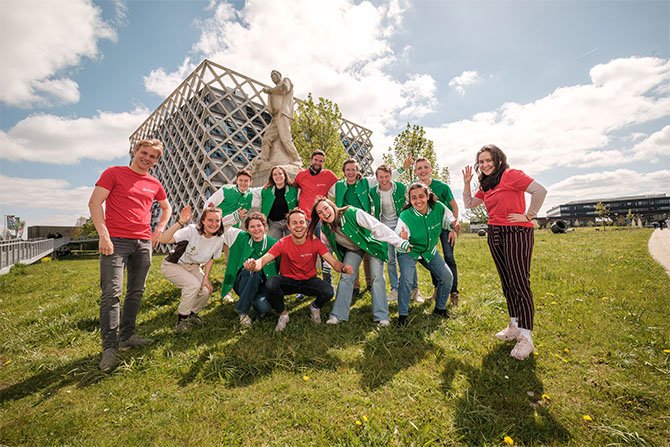ICAB conference 2024 - Speakers Thursday February 29
Chairman of the day, Thursday

As a research- and education assistant at Wageningen University, Tijmen Kerstens looks to integrate generative AI tools responsibly in both academic education and the research we conduct. While his focus is usually on crop growth models and greenhouse horticulture, the onset of generative AI has prompted him to find connections across the university to find a way forward in this exciting new future.
Keynote speakers
Working as intended?
Lately, AI has become either a term associated with innovation and promise, or with danger and risks. In this, public narrative seems to focus much less on a sufficiently refined articulation of the fundamental challenges and questions that AI technology is supposed to address. In this talk, I will argue how important this actually is when working on real-world applications with concrete societal impact.
Keynote speaker
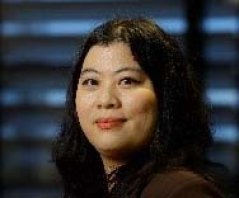
Cynthia Liem is an associate professor in trustworthy and responsible AI at Delft University of technology, as well as a classical concert pianist, and a member of the national Young Academy.
Artificial intelligence for sustainability
Artificial Intelligence has been instrumental in advancing science in the past decade and has provided a “fourth paradigm” for science: from bioinformatics to medical imaging and from linguistics to archaeology and mathematics.
Can AI be equally effective for advancing scientific discoveries related to sustainability in a changing climate? In this talk, I will revisit some of the grand challenges related to understanding and modelling sustainability problems: what sets such problems apart from other scientific endeavours? Can AI be useful and impactful in addressing such challenges? We will identify some of the challenges and opportunities and design a way forward for an inclusive and responsible AI.
Keynote speaker
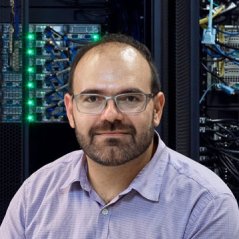
Ioannis N. Athanasiadis is a Professor of Artificial Intelligence and Data Science at Wageningen University and Research, The Netherlands. He investigates the enabling role of artificial intelligence for understanding nature, and big data science applications that relate to environment, agriculture, food and the quality of life. His expertise lies with machine learning, big data, and knowledge engineering. Ioannis leads the Wageningen University and Research theme on data-driven discoveries in a changing climate, and the international AgMIP team on machine learning for agricultural modelling. More about his research team.
(14.50 - 15.40) Parallel sessions round 1
AI & Education
Generative AI Learning Lab
How do we navigate the transformative world of generative AI? Do we embrace it, defend against it, or find a middle path? These urgent questions demand proactive policies, but where do we start?
Our Learning Lab broke through the uncertainty, bringing together educators, Ed-tech specialists, and privacy experts, not to make policy, but to explore generative AI's possibilities. At this workshop, we're excited to share our journey. You'll gain insights into our experimental process, learn about the conditions that foster innovation, and discover some outcomes.
Speakers

After years of experience as a lecturer/coach at Avans University of applied sciences, Peter Kenter dedicated himself to supporting innovation within education.

Examination & AI
Using GenAI-tools in Higher Education The impact on assessment
The current availability of GenAI tools raises questions regarding the impact of these tools on our education. Is the aim to have students use the tools to increase the quality of student performance (effect with)? Or is the aim to use the tools to enhance learning and lead to better performance without the tools (effect of)? Both aims have an effect on the assessment. In this workshop, we will discuss these effects on assessment as part of a course design. We offer a way of thinking that could help in questions regarding the use of GenAI in Higher Education.
Speaker
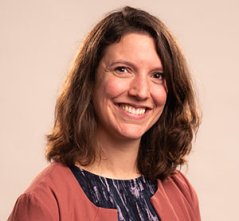
Laura Koenders is a consultant and teacher trainer specialised in the development and evaluation of assessment within courses in higher education. Within this domain, a specific area is the emergence and impact of chatbots and other upcoming AI-tools on assessment and course design in general. This background allows me to provide university-wide advice and training on embedding AI in university teaching practices.
AI & Research
AI tools in education: Challenges and opportunities
In this session, recent developments in the area of AI that have been explored in educational settings will be introduced. Group and plenary discussions will be developed around the associated challenges and opportunities.
Speaker

Ricardo da Silva Torre is a Professor of Data Science and Artificial Intelligence at Wageningen University and Research. He has been developing multidisciplinary e-science research projects involving multimedia analysis, multimedia retrieval, machine learning, databases, information visualisation, and digital libraries. Dr. Ricardo da Silva Torres received a B.Sc. degree in computer engineering and a Ph.D. degree in computer science from the University of Campinas, Brazil, in 2000 and 2004, respectively.
AI & Education
Navigating the future: the role of large lagnuage models in educational design
In this interactive session, we will explore the ethical implications and practical applications of Large Language Models (LLM) within educational design. Participants will gain insights into developing learning outcomes, learning activities, and assessments with the aid of LLMs, focusing on promoting ethical use. This workshop explores practical strategies for educators to effectively and responsibly integrate LLMs into their lesson plans and curriculum development.
Speaker

Dr. Stefan Jongen (Maastricht University) – Navigating the Future: the role of Large Language Models in Educational Design. I work as an assistant professor at the Faculty of Science and Engineering (Maastricht University), where my role encompasses research, teaching, and coordinating professional development initiatives for teaching staff, specifically within a Problem-Based Learning (PBL) framework.
AI & Research
Tour through the NPEC greenhouse
The NPEC Tour is a tour through the NPEC greenhouse, one of the newest greenhouses of Unifarm. In this greenhouse a lot of technology can be found that enables fast and easy analyses of plants. This project is a collaboration with the University of Utrecht and NWO (Dutch Organisation for Scientific Research), to encourage scientific research in the Netherlands.
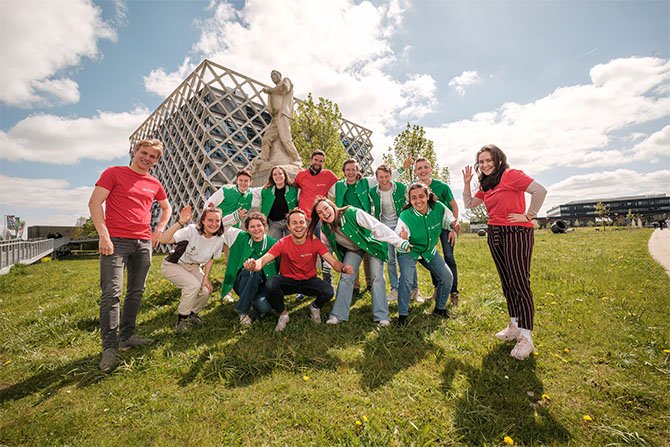
(16.00 - 16.50) Parallel sessions round 2
AI & Research
Research directions for AI in Precision Education
This talk will focus on the application of AI in precision education, exploring the diverse domains where precision education can be applied. We will identify various AI applications in these areas, aiming to pinpoint potential research topics and explore innovative strategies for enhancing learning outcomes. This exploration aims to provide a reflection on the current state and future potential of AI in crafting personalised learning experiences, and thus foster collaboration opportunities.
Speaker

Bedir Tekinerdoğan is a full professor and chairholder of the Information Technology group at Wageningen University, The Netherlands. He has more than 25 years of experience in information technology and software/systems engineering. He is the author of around 400 peer-reviewed scientific papers with more than 100 journal articles and 8 edited books. His current research at Wageningen University concerns smart systems of systems engineering, with an emphasis on software engineering, artificial intelligence, and information technology. More details can be found on his LinkedIn Profile.
Creative Technologies for Smart Applications: Trends & Challenges
Creative technologies encompass digital tools and methods such as virtual reality, augmented reality and AI-driven design. Their use typically allows the creator some format of artistic expression for interactive installations. Within a teaching setting, the technologies are being increasingly deployed in conjunction for storytelling and to explore innovative ways for kinaesthetic learning, where students become active participants rather than passive observers. Further, creative technologies are being increasingly considered as a communication layer for language model applications (such as ChatGPT), bringing interactive AI into the students’ frame of reference. As such, this talk explores some of the diverse case studies investigated at the Social Creative Technologies lab, with a focus on the lessons we have learned for their use in education.
Speaker
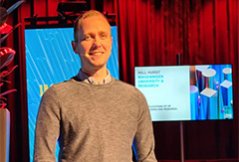
Dr. William Hurst is an Associate Professor in Data Science and eXtended Realities in the Information Technology Group at Wageningen University and Research and leader of The Social Creative Technologies Lab within the School of Social Sciences. He has over 100 publications in the areas of data science, creative technologies, and critical infrastructures.
AI & Education
Met Npuls op expeditie AI (DUTCH)
Hoe vinden we onze weg naar het onderwijs van de toekomst met AI? Expeditie AI van Npuls is de gezamenlijke ontdekkingsreis naar het onderwijs van de toekomst, waarin we de kansen die AI biedt, benutten en uitdagingen niet uit de weg gaan. We vertrekken samen met docenten, onderzoekers en ondersteuners, met juristen, informatiemanagers en analisten, met onderwijskundigen, examinatoren en begeleiders uit zowel het mbo, hbo als wo.
Tijdens de sessie wordt een overzicht gegeven van de activiteiten die Npuls met de sector onderneemt om die toekomst dichterbij te brengen, en gaan we in de zaal in gesprek over de uitdagingen en risico's die leven bij de aanwezigen.
Speaker
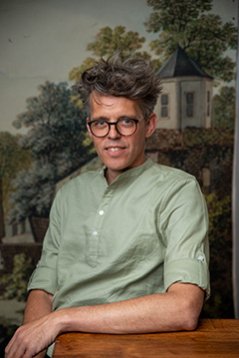
Bram Enning werkt al meer dan 25 jaar in en voor het hoger onderwijs. Begonnen als voorlichter voor aankomend studenten, daarna projectsecretaris, wetenschappelijk onderzoeker, beleidsadviseur en institutional researcher. Hij was aanvoerder van de Zone Studiedata bij het Versnellingsplan Onderwijsinnovatie met ICT en onder andere verantwoordelijk voor de totstandkoming van het Referentiekader privacy en ethiek en de Leadership challenge with data analytics and AI. Behalve aanvoerder bij Npuls is Bram coördinator van het team IR bij Hogeschool Leiden. Het zoeken van de verbinding is een belangrijke drijfveer voor Bram; alleen ga je sneller, samen kom je verder.
AI & Education
AI proof education #HOW!?
How do we adapt our teaching to the rapidly evolving world of generative AI? As educators, understanding and leveraging this change is crucial. The Center for Applied Research Future-Proof Education, research group Digital Education, has pioneered a teacher-focused model with Nine Questions for AI-Proof Education.
Join our workshop to dive into this helpful approach. We will guide you through each step, ensuring you leave with a comprehensive grasp of the model and a toolkit to use it in your own institution.
Speaker
After years of experience as a lecturer/coach at Avans University of applied sciences, Sjoerd van Gurp specialised in blended education and the use of educational technology. Sjoerd will give this workshop on behave of the research group Digital Education.
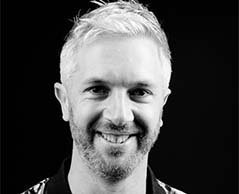
AI & Education
Game of 'Best of Both Worlds' by the Special Interest Group AI and Education of Wageningen University & Research
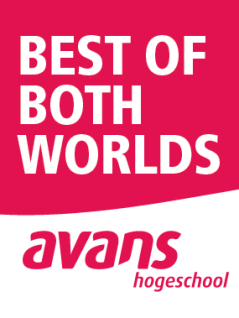
Though technological developments like generative AI (GenAI) are transformative and widespread, open discussions on their added value in education can be difficult since opinions and perspectives vary widely. ‘Best of Both Worlds’ is a game intended to deepen and stimulate these discussions. Based on a practical case, you will consider its learning goals and the GenAI tools that can be implemented from various perspectives, to finally answer some burning questions: Where can humans and AI complement one another? How can we organise this concretely? This session will start with a brief introduction to the game and its rules, after which you will split up into groups to play it yourselves. (Game credits: Lectoraat Digitale Didactiek, Avans Hogeschool)
Tour through the NPEC greenhouse
The NPEC Tour is a tour through the NPEC greenhouse, one of the newest greenhouses of Unifarm. In this greenhouse a lot of technology can be found that enables fast and easy analyses of plants. This project is a collaboration with the University of Utrecht and NWO (Dutch Organisation for Scientific Research), to encourage scientific research in the Netherlands.
